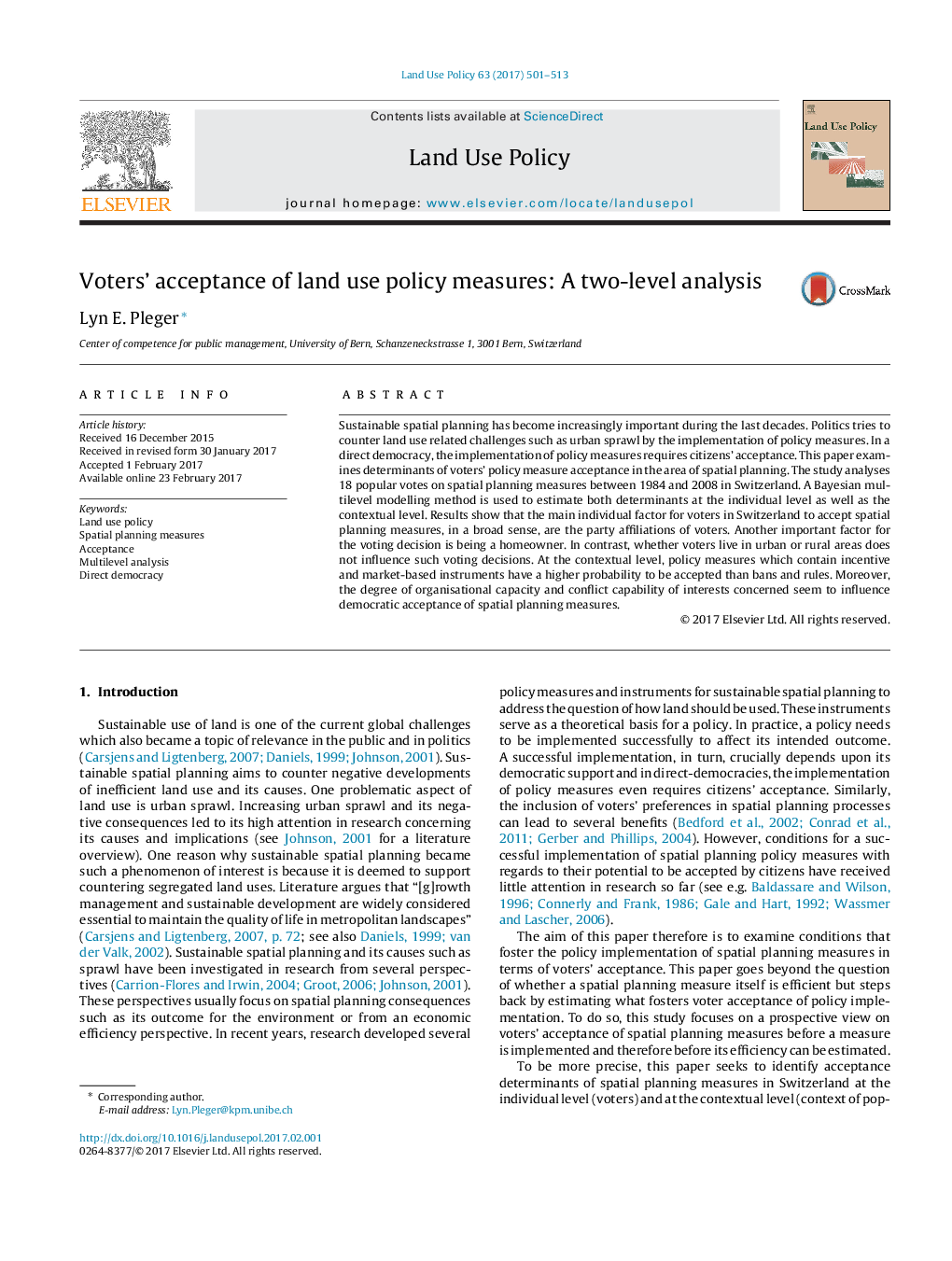| Article ID | Journal | Published Year | Pages | File Type |
|---|---|---|---|---|
| 6461070 | Land Use Policy | 2017 | 13 Pages |
â¢Analysis of democratic acceptance of 18 land use measures in Switzerland between 1984 and 2008.â¢Bayesian multilevel estimation is employed for investigating determinants at the individual and at the contextual level.â¢Main individual factors to explain democratic acceptance are party affiliations of voters and homeownership.â¢At the contextual level, incentive-based instruments have a higher acceptance probability than bans and rules.â¢The degree of organisational capacity of interests concerned and the policy area also influences the voters' decision.
Sustainable spatial planning has become increasingly important during the last decades. Politics tries to counter land use related challenges such as urban sprawl by the implementation of policy measures. In a direct democracy, the implementation of policy measures requires citizens' acceptance. This paper examines determinants of voters' policy measure acceptance in the area of spatial planning. The study analyses 18 popular votes on spatial planning measures between 1984 and 2008 in Switzerland. A Bayesian multilevel modelling method is used to estimate both determinants at the individual level as well as the contextual level. Results show that the main individual factor for voters in Switzerland to accept spatial planning measures in a broad sense are the party affiliations of voters. Another important factor for the voting decision is being a homeowner. In contrast, whether voters live in urban or rural areas does not influence such voting decisions. At the contextual level, policy measures which contain incentive and market-based instruments have a higher probability to be accepted than bans and rules. Moreover, the degree of organisational capacity and conflict capability of interests concerned seem to influence democratic acceptance of spatial planning measures.
